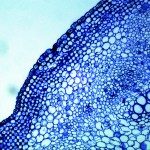Link to Pubmed [PMID] – 20709103
Immunol. Lett. 2010 Nov;134(1):17-25
In T lymphocytes, the internalization of the R2 chain of the IFN-γ receptor (IFN-γR2) prevents the switching-on of pro-apoptotic and anti-proliferative genes induced by the IFN-γ/STAT1 pathway. In fibroblasts, a critical role of controlling the IFN-γR2 internalization is played by the LI(255-256) intracellular motif. Here we show that, in human malignant T cells, the expression of a mutated IFN-γR2 chain in which the LI(255-256) internalization motif is replaced by two alanines (LI(255-256)AA) induces cell surface accumulation of the receptor and reinstates the cell sensitivity to IFN-γ. In comparison with T cells that expressed wild-type IFN-γR2, cells that expressed the mutated receptor displayed, in response to IFN-γ a sustained activation of STAT1. The activation of this signaling pathway leads to higher induction of MHC class I and FasL expression and triggered apoptosis. Malignant ST4 cells transduced with either wild-type or mutated receptor were able to grow in SCID mice, but only the proliferation of T cells expressing the mutated receptor was inhibited by IFN-γ. Finally, lentiviral-mediated transduction of the mutated receptor in T lymphoblasts from healthy donors reinstated their IFN-γ-dependent apoptosis. As a whole, these data indicate that perturbation of IFN-γR2 internalization by mutating the LI(255-256) motif induces a timely coordinated activation of IFN-γ/STAT1 signaling pathways that leads to the apoptosis of T cells.

